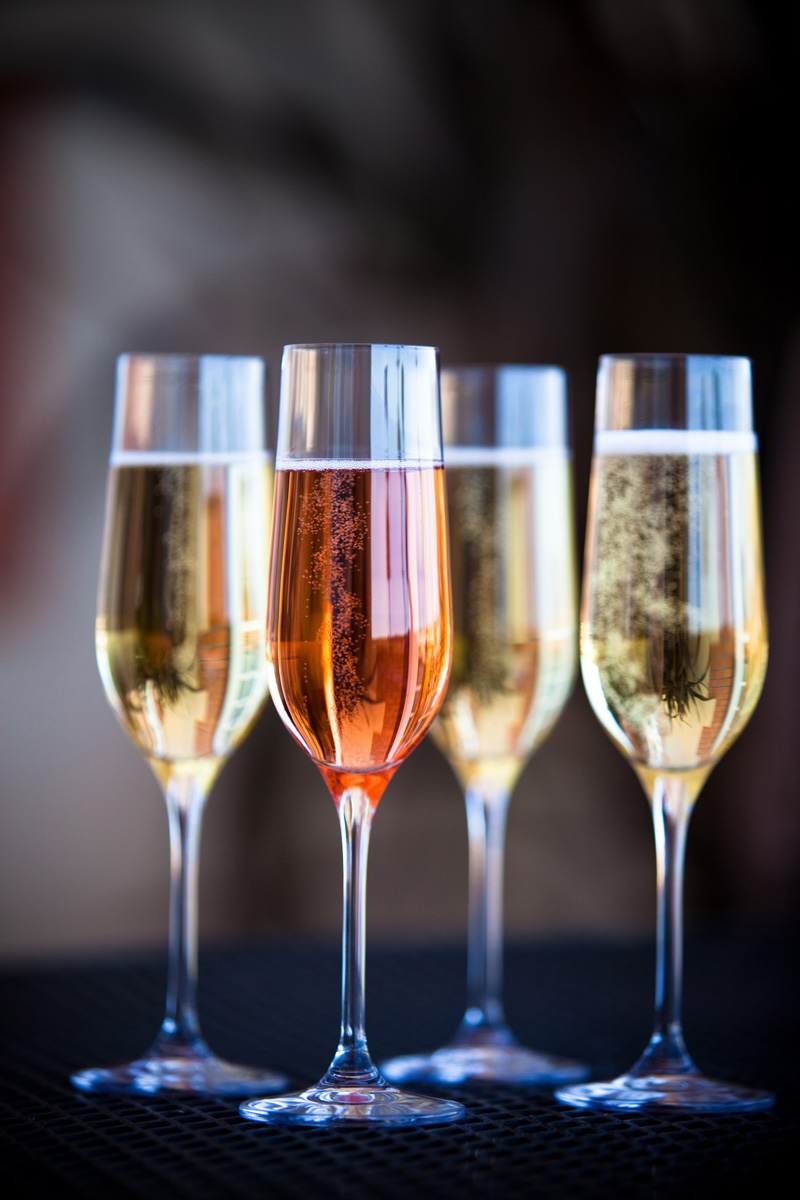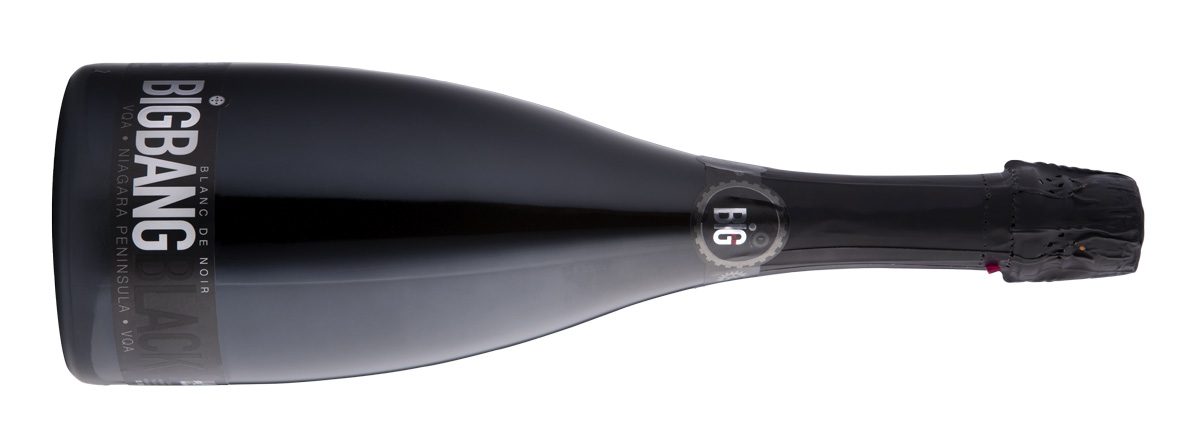
Ontario Wine Culture

istockphoto.com photo
Ontario’s cool climate and limestone soils make it prime territory for traditional-method sparkling but it’s the people behind the bottles sparking a revolution in bubbles.
While a blind tasting of the best Ontario-grown, lees-aged Chardonnay and Pinot-based wines could convince even the deftest master somms they’re in Champagne, a growing contingent of winemakers experimenting with new varieties and styles are staking out Ontario’s own identity as a versatile and dynamic producer of world-class bubbly.
There’s no need to pay Champagne prices with fizz this fine so close to home.
Baby Duck days are dead. Long live the era of Fizz Club, Brock University’s Cool Climate Oenology and Viticulture Institute’s annual meet to encourage producers of Canadian sparkling to get technical and talk shop, which doubled in size last year. Our expectations—and quality—have nowhere to go but up.
So let’s run down the three major styles of bubbly to get you started and a cheat sheet of bottles to keep your glass of full of fizz all summer long because in the wine world tasting is learning.
Wines made in the traditional method, carbonated and flavoured by the activities of bottle-bound yeast and first spun into prestige and liquid gold by the Champenois, remain the benchmark spritz. But there’s no need to pay Champagne prices with fizz this fine so close to home.
($45, Niagara)

A trippy estate-grown blanc de noir punctuated with Chardonnay sunbeams from a dried grape recioto dosage—clever use of appassimento is a trademark of the family-run house. It’s slowing releasing batches with successive wines getting more time to develop in bottle. Up next 60 months on lees—yes, please!
($50, Niagara)

Family-run Henry of Pelham is a low-key powerhouse of damn fine sparkling. Carte Blanche is their pinnacle bubb, a precise and decadent expression of Niagara Chardonnay that earns its elegance after 4.5 years of bottle aging.
($30, Niagara)

Kew is making some seriously impressive new-school sparkling. This plush and sophisticated showcase of Pinot Meunier, Champagne’s Cinderella grape usually employed as a lowly blending wine, found its glass slipper in Ontario. Floral and creamy with aromas of super-ripe melon, Asian pear, lychee and yeasty goodness, it brings to mind a stellar sake.
Charmat-method wines are economical while still containing enough everyday magic to transform any random Tuesday into a special-ish occasion.
Clean, boisterous bubbles achieved through a secondary fermentation in tank rather than in bottle and popularised by Prosecco, Charmat-method wines are economical while still containing enough everyday magic to transform any random Tuesday into a special-ish occasion.
($20, Prince Edward County)

A jubilant, dependably delicious sparkler made from Lighthall’s homegrown Vidal, Ontario’s workhorse hybrid. Don’t be tricked into thinking Charmat wines can’t be elegant, because this is sleek A.F. with a lively mousse, lovely texture and a calculated whip of acidity.
($20, Prince Edward County)

An undemanding and gluggable Vidal splashed with Pinot Noir, Pixie is picnic wine to its coral core. Pop a cold one with friends and another will likely follow. Off-dry with wafts of sun-warmed strawberry and super-charged bubbles. Those seeking serious elegance with a matching budget should reach for Stardust 2011, their excellent five-year lees-aged estate Pinot Noir and Chardonnay.
Ontario is squeezing out more and more Pétillant Naturel (pét-nat or “cool kid juice” for short), wines that are bottled before their initial fermentation wraps. The resulting trapped CO2 creates a gentle fizz. This process has been at play for so many centuries that it earned an alias—method ancestral. At their best, these wines are spritzy, funked-up fruit-bombs to be drunk for delight, not deliberation.
($25, Niagara)

A one-wine petit side project of Leaning Post’s former assistant winemaker and newly minted winemaker at BC’s Rust Wine Co., Ryan De Witte. First Fruit is a plucky marriage of hand-picked, skin-contact Gewurztraminer (some of it whole-cluster, some of it whole berry) and Muscat. It’s unfined and unfiltered with no added sulphur. Uh huh, it’s natural wine. Run for the hills or open your mind and mouth while turning a Beastie Boys record all the way up. Though light-years from one-dimensional, it’s not a bottle to get precious about—so pop that crown cap tomorrow and let its cloudy burst of pith, peel and petals get all up in your cup.
($25, Prince Edward County)

Bringing up the topic of Ontario bubbles without broaching Hinterland, Canada’s first sparkling-focused winery, is just poor form. The Prince Edward County bubbles specialist makes wines of all styles (all excellent). Ancestral is an off-dry Gamay with easy effervescence and loads of juicy watermelon, clocking in at the treat end of the spectrum. Garnet-tinted and free of sediment, it’s less weird and more widely loveable than most wines of this style. For a drier and funkier take filled with wild berries opt for the 2017 Lacus.

Sarah Parniak is a drinks writer with a bottomless curiosity for beverages. Her work has appeared in likes of Toronto Life, enRoute, Foodism, Quench and NOW Magazine. In a former life she represented Canada in international cocktail competitions and currently works as the Canadian Brand Ambassador for distilled non-alcoholic spirits company Seedlip. Find her on Instagram and Twitter @s_parns.

Sarah Parniak is a drinks writer with a bottomless curiosity for beverages. Her work has appeared in likes of Toronto Life, enRoute, Foodism, Quench and NOW Magazine. In a former life she represented Canada in international cocktail competitions and currently works as the Canadian Brand Ambassador for distilled non-alcoholic spirits company Seedlip. Find her on Instagram and Twitter @s_parns.
Copyright © 2026 - All Rights Reserved Vitis Magazine